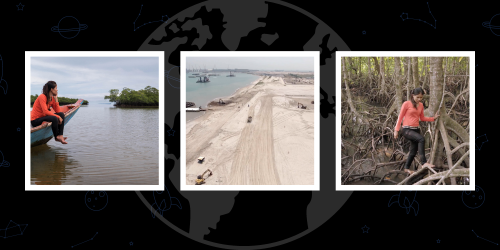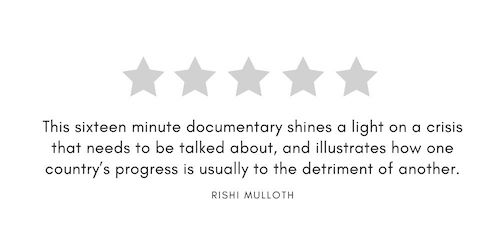Por Rishi Mulloth
Many people only hear about the ecological destruction that is occurring across the globe, but some have to live in it, watching as their homes and livelihoods are threatened by outside interests. The coastal people of Cambodia are suffering through this now as they watch tons of sand being dredged from the mangrove forests to support a country they do not call home. This environmental damage not only impacts the thousands of families that survive from fishing these waters, but also ruins Cambodia’s only natural protection from different natural disasters. All of these problems just to support Singapore’s land mass expansion. While one country thrives, the other is left to survive.
Mundo perdido, directed by Kalyanee Mam, was curated for Planet Classroom Network by the Global Oneness Project. It follows a member of this community, Vy Phalla, showing the destruction of sand dredging and what happens when all this sand gets to Singapore. Phalla, her family and her community all live off the aquatic wildlife that surrounds them, and the sand is a crucial part of these organisms’ habitats. For Phalla, all she wants to see is her community and the forest around them thrive, and to continue living the way they always have.
This documentary has great production, and really goes in depth on all the different problems occurring because of this process. This sixteen minute documentary shines a light on a crisis that needs to be talked about, and illustrates how one country’s progress is usually to the detriment of another. I highly recommend this film and give it five out of five stars.
Rishi Mulloth es un recién graduado de la Universidad de Pittsburgh con títulos en economía y estudios de cine y medios., y asistirá a la Universidad de Scranton este otoño para obtener una maestría en analítica empresarial. He is currently working on the production of the film Thanks to Her, y aspira a trabajar en la adquisición de contenidos.





Comentarios recientes